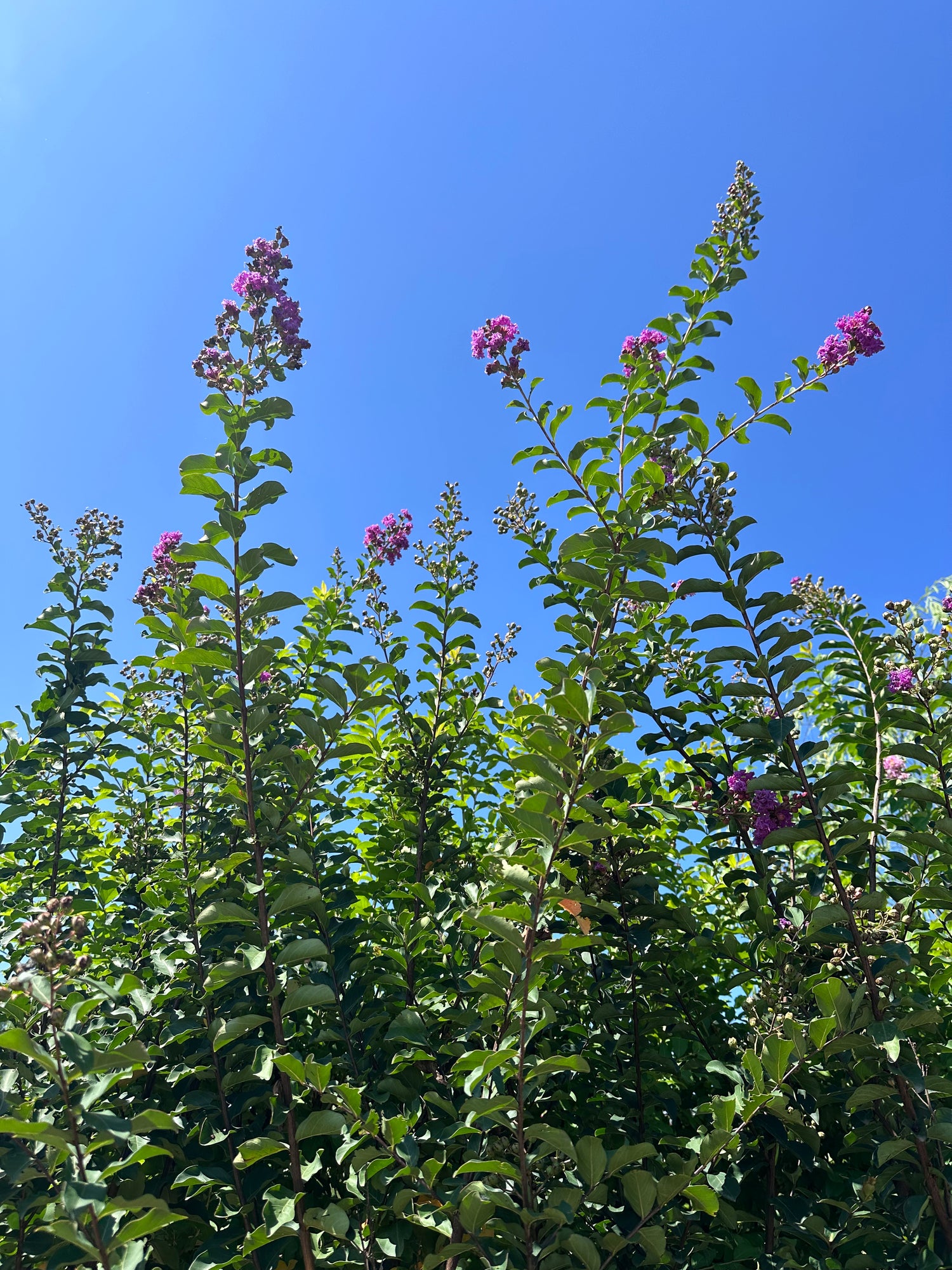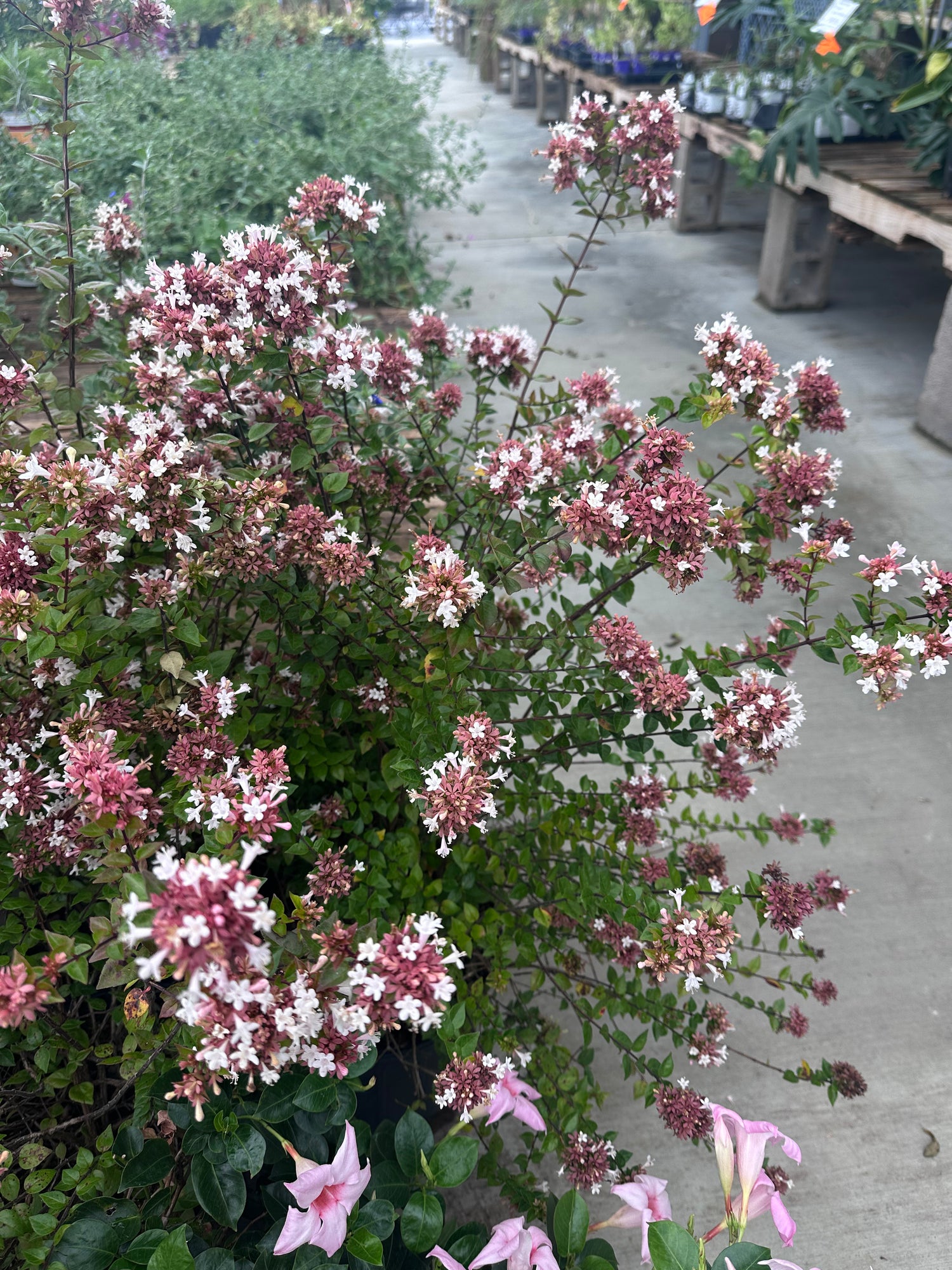Trees & Shrubs:
In August you can plant heat-tolerant shrubs and ornamental grasses if you’re able to water
consistently. Choose late afternoon or early morning for planting and prep your
soil well.
Recommended Plants:
- Crape myrtle – still blooming; thrives in full sun and heat.
- Rose of Sharon – Can continue blooming into August; monitor for reseeding.
- Knock Out Roses – Deadhead spent blooms and keep well-watered.
- Ornamental Grasses – Provide movement, texture, and drought resistance.
- Anise Shrub – bold color and deer resistant
- Peggy Martin Roses – classic southern roses that are so resilient they survived Hurricane Katerina!
- Carolina Cypress Sapphires – low maintenance, evergreens with a great fragrance
- Sunshine Ligustrum – bright foliage and sun-loving
- Panicle Hydrangeas – Limelights (white/green), Torch (ivory that ages to red in the fall), and Fire Light (light reed)
- Encore Azaleas – are starting their summer blooms!
When planning new trees and shrubs, use Callaway’s Bed Builder to improve soil before
planting and be sure to provide daily watering. Water with Ferti-lome Root
Stimulator weekly for up to 5 weeks.
Perennials
August is a good time to plant or divide heat-loving perennials, especially as some begin
prepping for fall growth.
Sun Lovers: Coneflowers, Coreopsis, Salvia, Guara, Plumbago
Shade Lovers: Liriope (Monkey Grass), Autumn Fern, Southern Wood Fern, Hostas, Heuchera (Coral Bells)
Water deeply and mulch well to help new plantings withstand August heat.
Summer Annuals & Tropicals:
You can still plant late-season color in August—just focus on heat-lovers.
Sun Annuals: Vinca, Zinnias, Portulaca, Celosia, SunPatiens, Angelonia
Shade Annuals: Coleus, Impatiens, Caladiums, Torenia, Wax Begonias
Tropicals: Hibiscus & Mandevilla – all still thriving and blooming.
Tropicals & House Plants Outside:
Tropicals are still thriving outdoors—but watch the heat.
Light: Bright shade or filtered sun (avoid harsh afternoon rays)
Water: Check daily—pots dry out fast. Water when top 1–2" are dry.
Humidity: Group plants or use pebble trays for humidity. Mist in the morning if needed.
Feeding: Use fish emulsion or liquid houseplant food every 2–4 weeks.
Pests: Watch for spider mites, mealybugs, aphids—treat with insecticidal soap or neem
oil.
Vegetables
Late summer means preparing for fall harvests. Plant heat-lovers now and start seeds indoors for cool-season crops.
Direct Sow in August:
Okra, Southern Peas, Pumpkins (early Aug), Collards, Turnips
Transplant in August:
Peppers, Eggplant, Tomatoes (cherry varieties), Basil, Thyme, Oregano
Start Indoors for Fall Garden:
Broccoli, Cauliflower, Brussels Sprouts, Cabbage
Fertilize with Ferti-lome Tomato & Vegetable Food (7-22-8) or Fish Emulsion. Keep beds mulched and water deeply.
Attract Pollinators
Keep those pollinators coming with nectar-rich flowers!
Butterflies:
Zinnias, Lantana, Butterfly Bush, Milkweed
Bees:
Cosmos, Basil, Black-Eyed Susans
Hummingbirds & Birds:
Bee Balm, Cuphea, Pentas, Salvia
Pruning & Cleaning
- Do not prune heavily in the summer heat.
- Only prune when necessary: dead, damaged, or diseased limbs
- Light shaping of spent summer bloomers (e.g. Crape Myrtle, Butterfly Bush)
- For cuttings for bouquets, cut early in the morning, strip lower leaves, and change vase water daily.
Propagate via Softwood Cuttings:
Coleus, Mint, Basil, Salvia, Wandering Jew
Succulents and pothos can still be propagated in August.
Fertilizing:
Avoid fertilizing trees and shrubs in August unless you’re using a transplant-specific root
stimulator. Excess nitrogen can stress plants in the heat.
Repotting
You can still repot
tropicals, containers, and houseplants if they are root-bound.
- Choose overcast or early morning for minimal stress
- Use fresh potting mix and water thoroughly
- Shade repotted plants for 2–3 days to reduce shock
Lawn Care
- Do not fertilizer in extreme heat
- Mow high to shade roots and reduce water stress
- Water deeply, but less often
- Spot-treat weeds
- Save reseeding until late September or October
- Keep an eye out for army worms. Their peak season is late August through early fall. If Army Worms are present, use Hi-Yield 38-Plus or Bug Blaster.
Get instructions specific to your grass:
Mulch & Straw
Refresh mulch/pine straw around trees, shrubs, and garden beds:
- Maintain 2–3 inches of mulch or pinestraw
- Replenish after heavy rain
- Keep mulch pulled back from base of stems/trunks
Mulch keeps soil cool, retains water, and reduces stress in the hottest month of the year. It is also effected in keeping weeds away.

What's Blooming in September?
Annuals & Tropicals:
Crape Myrtles, Rose of Sharon, Hibiscus, Blue Daze, Purselane, Knock Out Roses, Abelia, Zinnias, Vinca, Marigolds, Pentas, Mandevilla, Bougainvillea
Perennials:
Coneflowers (Echinacea), Black-Eyed Susans (Rudbeckia),Gaillardia (Blanket Flower), Lantana, Salvia (including Mexican Bush Sage starting late August) Coreopsis
Shrubs & Trees:
Crape Myrtle, Rose of Sharon, Vitex/Chaste Tree, Gardenia, Hydrangeas
Recommended Products
-
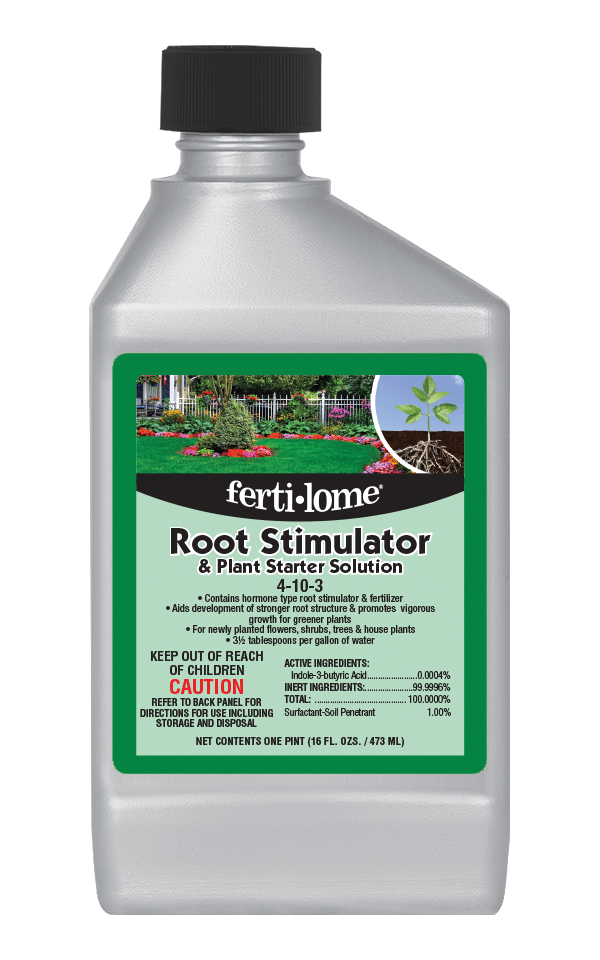
-
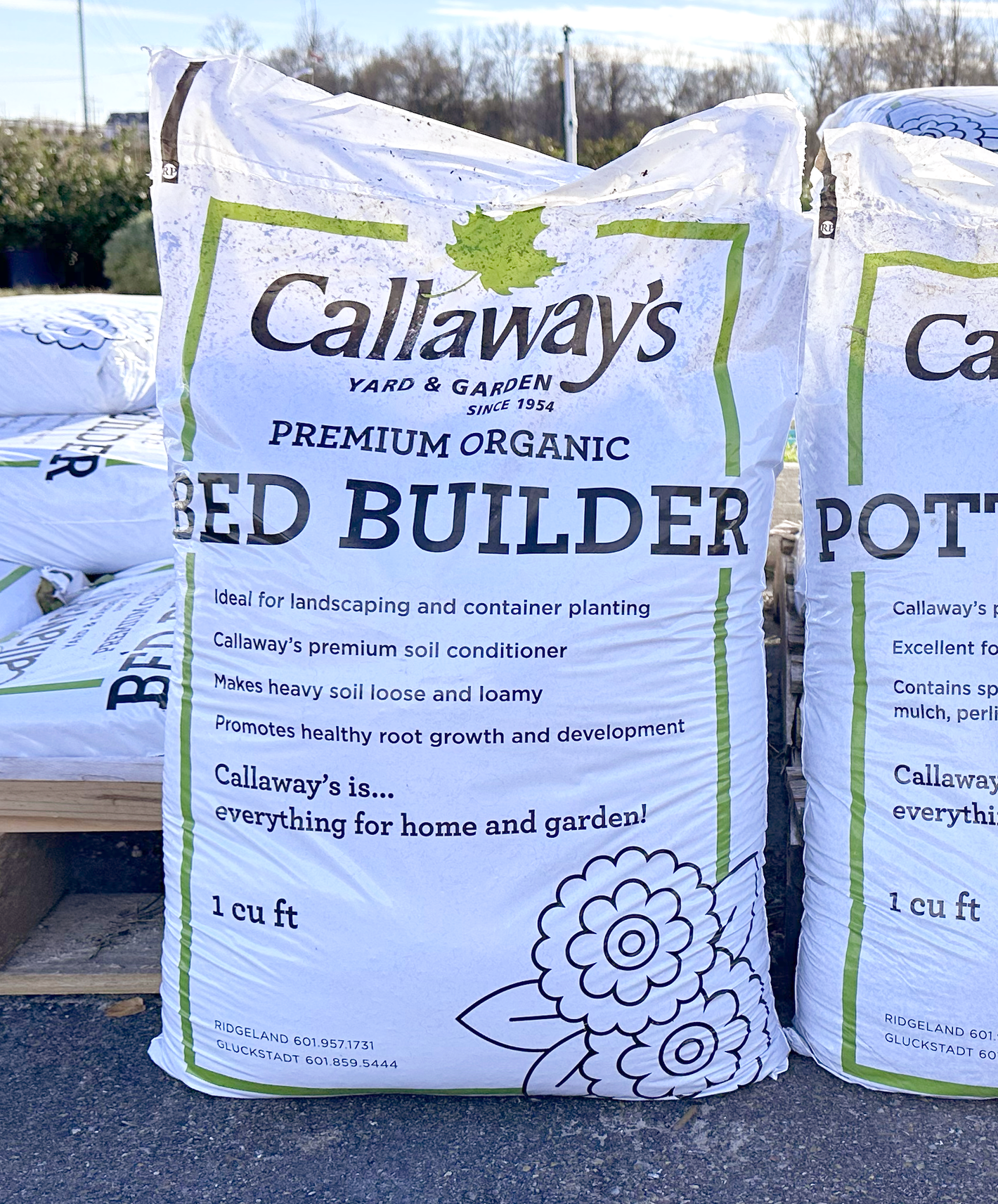
Callaway's Bed Builder
Mix with existing soil to prep flower beds for planting.
Shop In Store
-
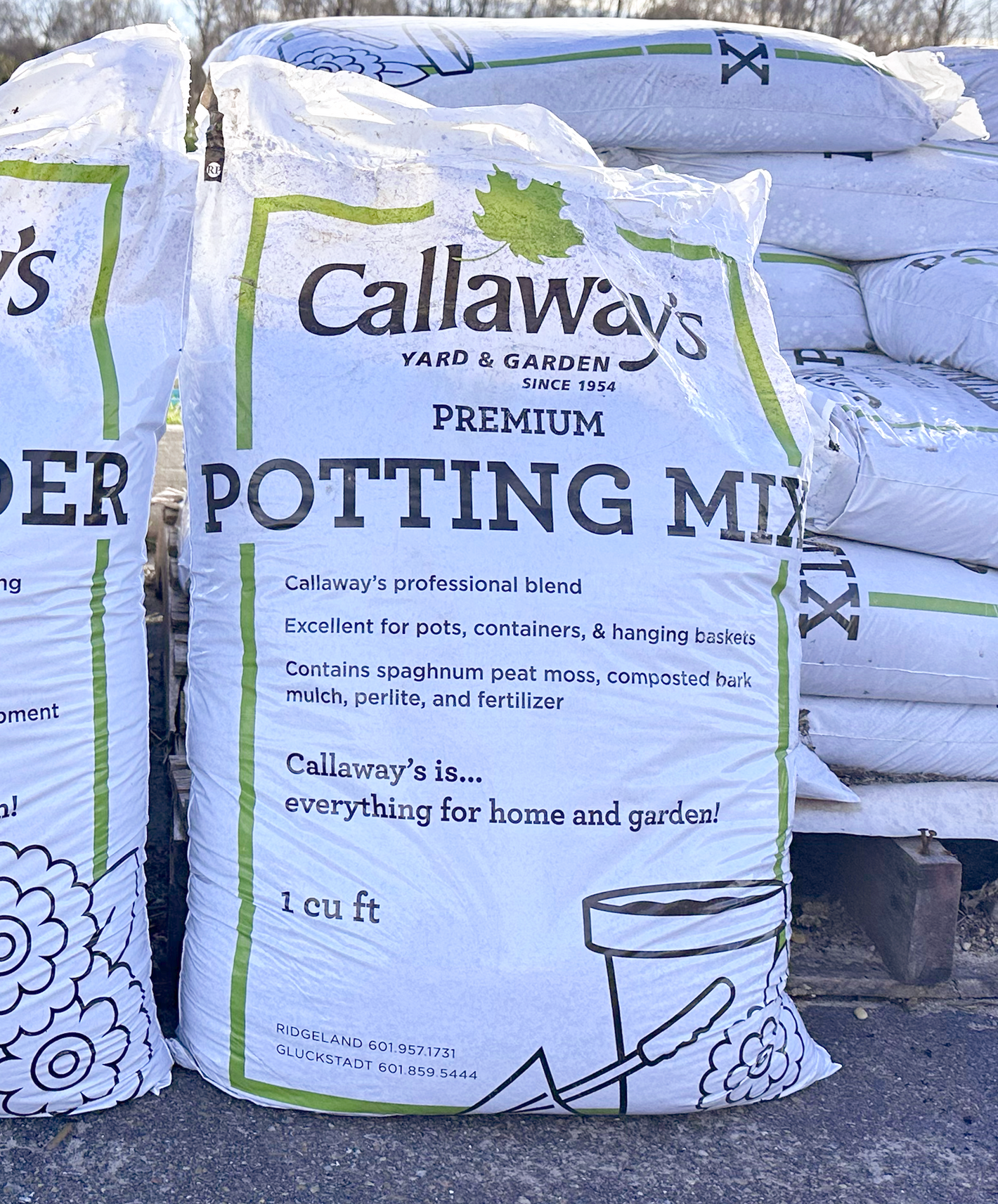
Callaway's Potting Mix
Use for potted plants
Shop In Store
-
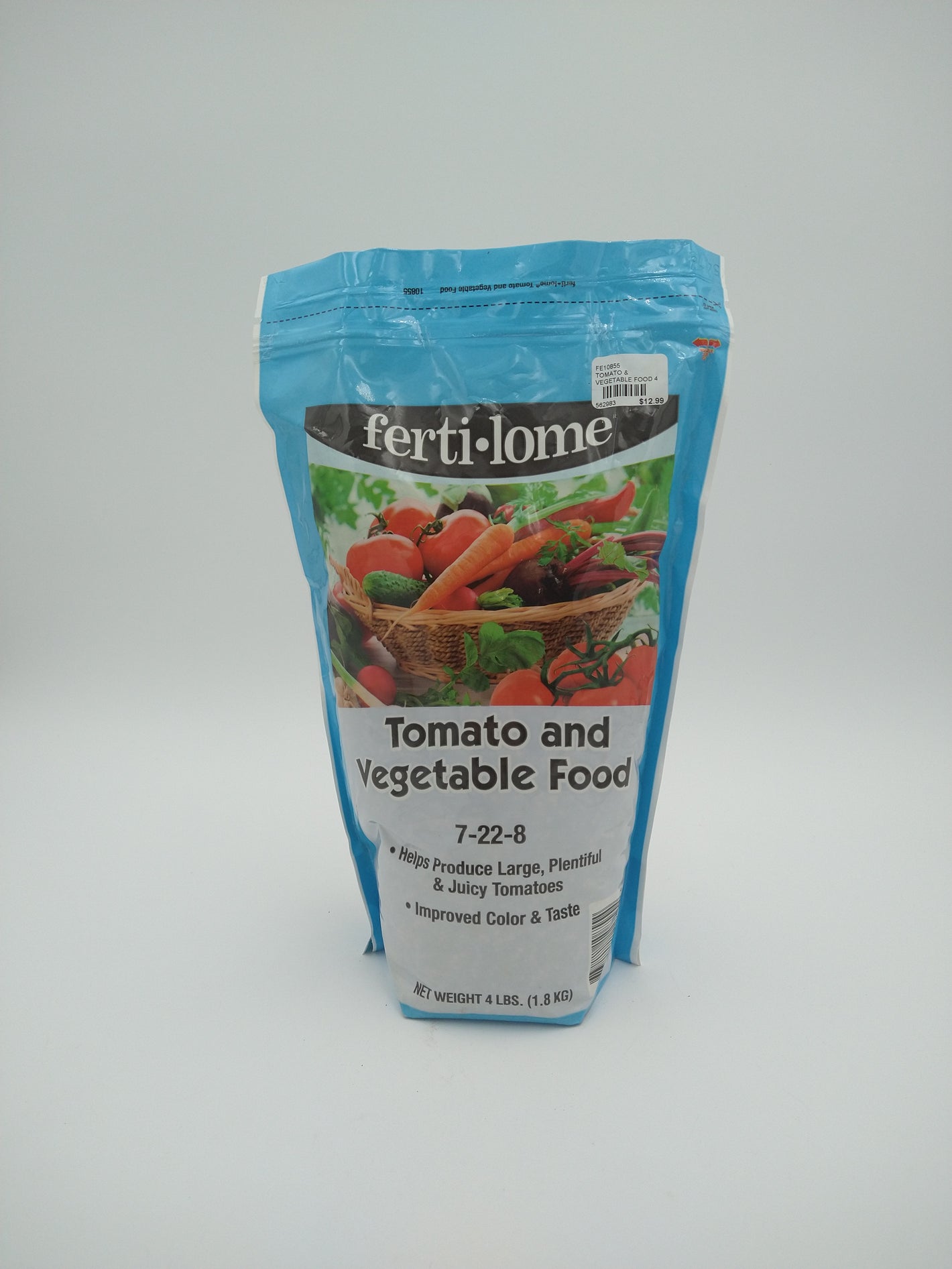
Hi-Yield Tomato & Vegetable Food
Shop OnlineUse on tomato and vegetable plants
Shop Online or In Stores
-
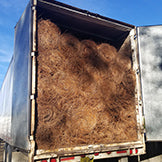
Mulch & Pine Straw
Learn MoreCallaway's carries pine straw by the roll and a variety of bagged mulches. We also have pine bark mulch in bulk.
Shop In Store
-
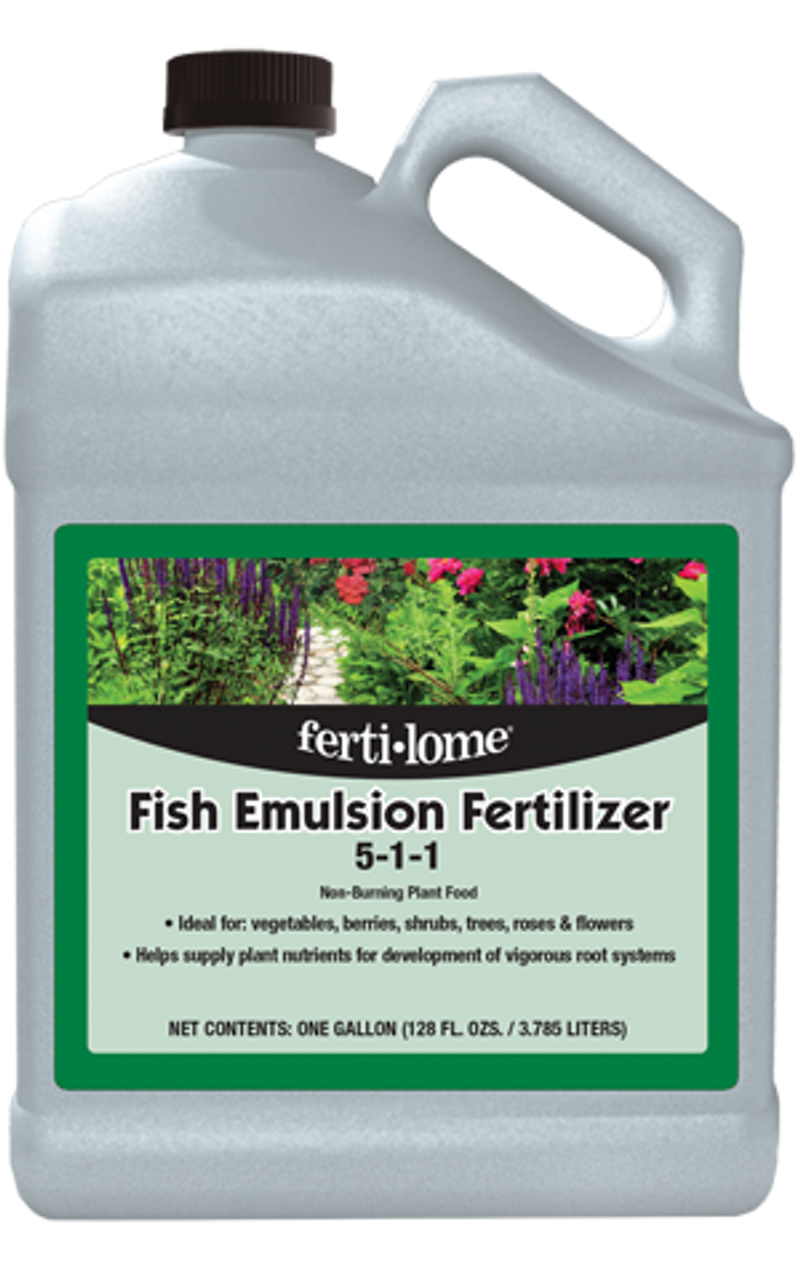
Ferti-lome Fish Emulsion Fertilizer
Use to fertilize vegetables.
Shop In Store

